Reasons Why Upskilling and Reskilling Matter in Today's Job Market
Learn how upskilling and reskilling can boost your career, increase earning potential, and future-proof your job. Explore the top reasons why continuous learning matters.
Table of contents

Learn how upskilling and reskilling can boost your career, increase earning potential, and future-proof your job. Explore the top reasons why continuous learning matters.
Ever felt like your career is a wild roller coaster ride? Picture this: just when you've mastered one twist and turn, the track shifts beneath you. That's today's job market—a thrilling whirlwind of constant change and rapid advancements. What was groundbreaking yesterday is old news today, and new opportunities pop up like surprises around every bend.
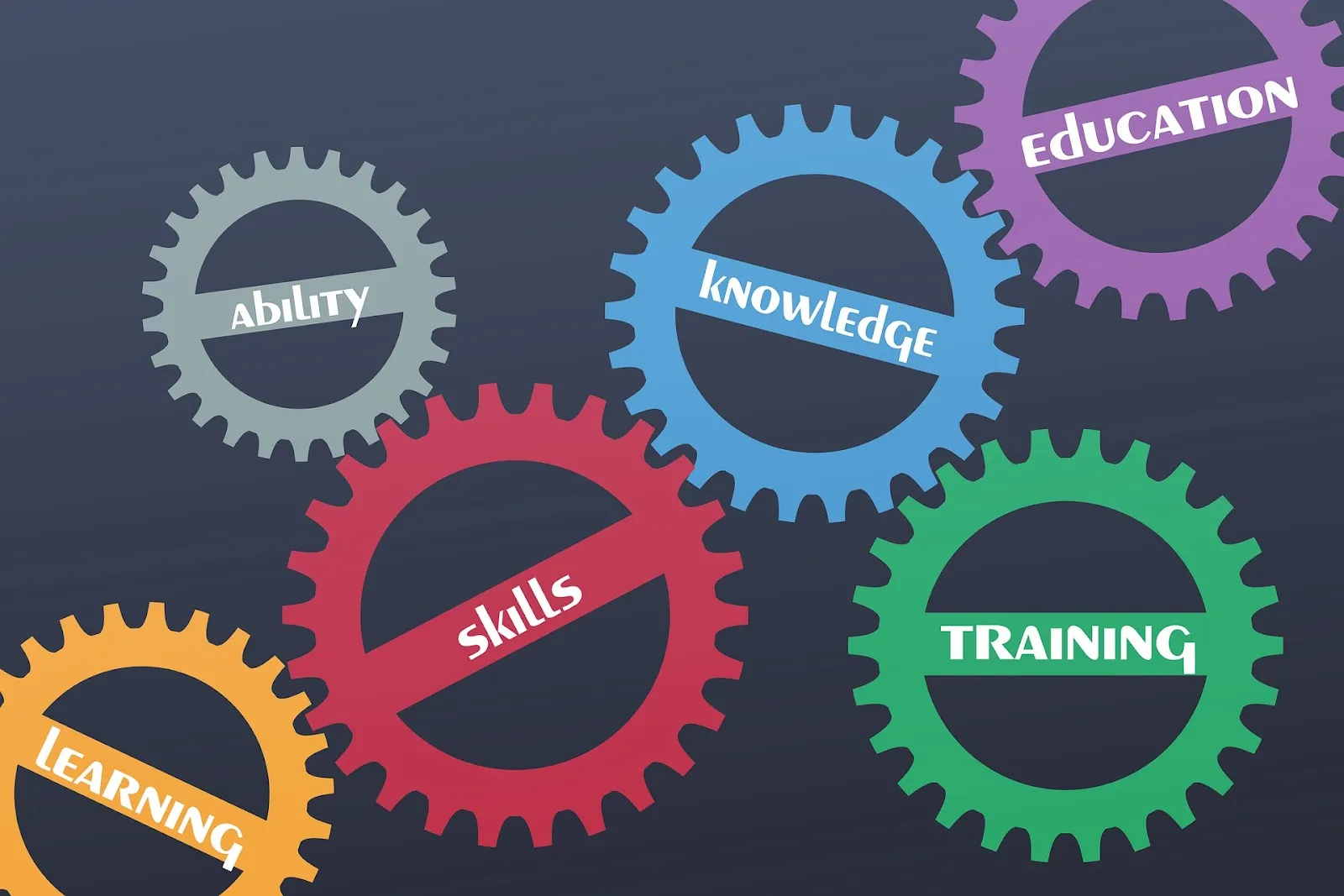
Imagine professionals as daring thrill-seekers, navigating this exhilarating ride with agility and a knack for learning. As industries transform digitally, traditional roles get a makeover while fresh, specialized jobs appear out of thin air. Those who can ride this roller coaster by picking up and perfecting sought-after skills will find themselves in pole positions for success in our dynamic digital world.
Understanding these shifts isn't just smart—it's essential for anyone looking to thrive in today's ever-evolving job market.
In the bustling landscape of 21st-century careers, Quentin Denais stands out as a digital innovation expert at Randstad Digital.
With a keen eye for emerging trends, Quentin shares, "Digitization and automation will reshape 20 to 30% of jobs in the next decade." Surprisingly, only 16% of businesses are prepared for this seismic shift, altering the very fabric of our workforce.
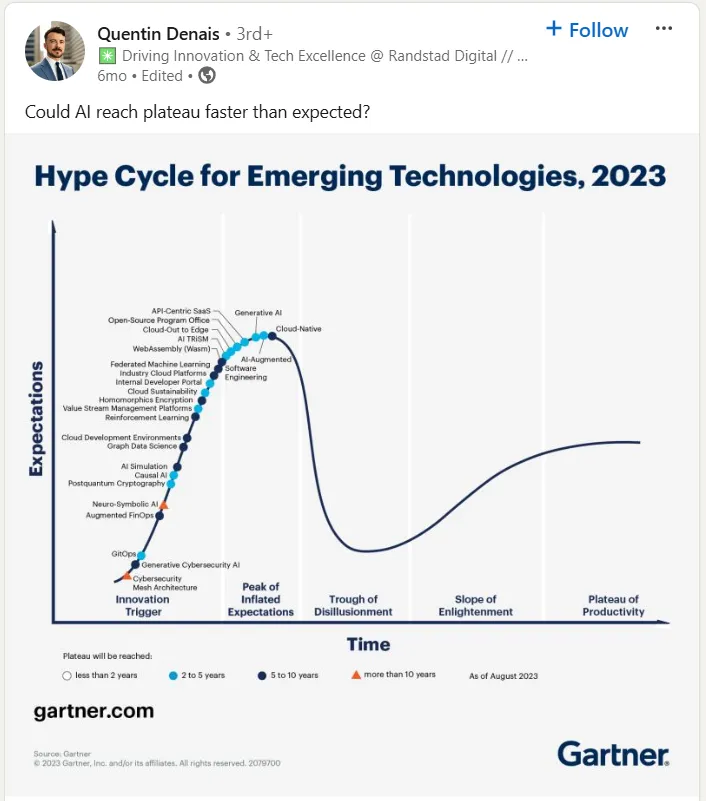
Quentin's journey illuminates a new era where job roles are crafted, feedback is paramount, and career paths are diverse. "Nearly half of professionals foresee juggling multiple employers," he notes, highlighting the evolving nature of work.
This dynamic demands versatile skills that make you indispensable in today's job market roller coaster. Quentin predicts, "Lifestyle-centric benefits will become crucial." Think flexible hours, remote work, and team-based bonuses—perks designed to harmonize work and life. Global mobility is on the rise, too, offering cross-border assignments that enrich professional experiences.
Beyond mere software updates, HR is evolving into specialized hubs that collaborate across companies. "It's about personalized support and development," Quentin explains, emphasizing agility, adaptability, and vibrant company cultures as magnets for top talent.
For you, this means seeking out companies that champion innovation and support—where upskilling is not a luxury but a necessity. According to Quentin’s article on LinkedIn, here’s what you should focus on:
As we forge ahead, mastering new skills isn't just beneficial—it's essential for navigating today’s dynamic job market.
Imagine a world where Artificial Intelligence (AI) isn't just a buzzword but a transformative force in the job market. Emphasizing this point, Hemachandran Kannan, Director of the AI Research Centre at Woxsen University, quotes from the World Economic Forum’s 2023 Future of Jobs report, "AI is set to reshape millions of jobs by 2028." Yet, AI opens doors to exciting new career paths amidst job displacement. Picture leaving a repetitive job behind to step into roles like data scientist or machine learning engineer—fields teeming with opportunities.
According to Hemachandran, "AI is creating dynamic careers in data science, machine learning, chatbot design, and AI ethics." To excel in these fields, mastering programming languages like Python and understanding machine learning and data visualization are crucial. Equally vital are soft skills such as creativity, communication, and ethical reasoning.
A webinar on generative AI and AI tools for Higher Education
Meanwhile, cyberspace—encompassing the vast internet and mobile networks—reshapes our work landscape. It enables businesses to operate globally round the clock but also introduces cybersecurity challenges. "New roles like cybersecurity analysts and ethical hackers emerge to tackle these challenges," notes Hemachandran.
Sustainability emerges as another pivotal area. Companies now face mounting pressure to operate responsibly, spurring careers in social impact consulting, sustainable agriculture, and green energy. "Roles like sustainability managers and social entrepreneurs blend financial viability with a positive impact," highlights Hemachandran. Success in these fields demands strategic thinking, collaboration, and effective communication skills.
Here's what you should focus on:
Understanding AI's impact underscores the urgency of continuous learning and adaptation in our rapidly evolving world.
In today's fast-paced world, staying competitive means continually sharpening your skills.
Meet Nitin Behki, an HR consulting guru who stresses the urgency of this in the age of AI. "AI tools like Generative AI are reshaping business operations," he explains, underscoring the need for professionals to stay ahead in this new landscape. Shockingly, only 8% of Indian workers possess the skills needed for current jobs, while a whopping 93% feel reskilling and upskilling are vital for their career growth—a challenge and an opportunity for all.
AI's impact on jobs is seismic. By 2025, it's predicted to displace 75 million jobs globally while creating 133 million new ones, reshuffling traditional roles. Nitin insists, "Companies must lead in offering reskilling. Investing in employees' growth ensures they stay relevant." Today, organizations tap into the gig economy and internal talent markets to harness specialized skills and maximize their existing talent—a proactive strategy in today's complex job market.
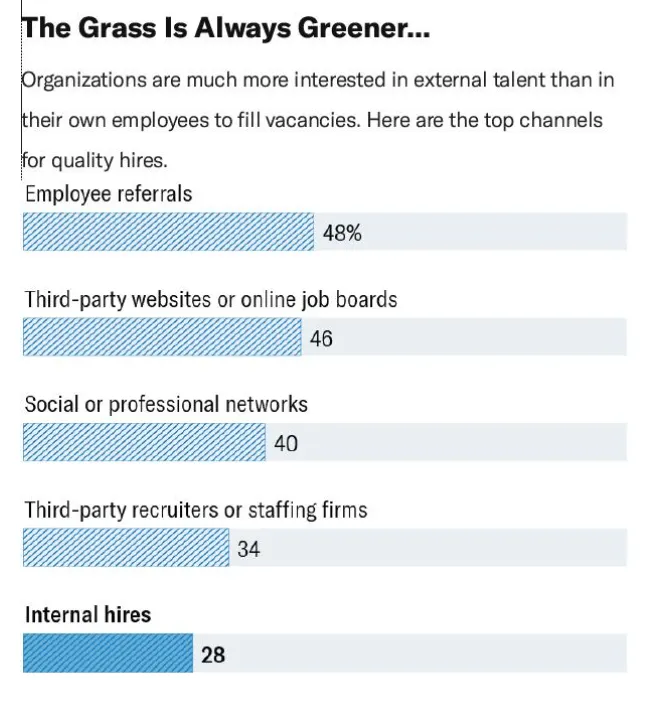
Interestingly, the shift to new roles isn't just for those with related experience. "Half of those in data science and AI roles came from unrelated fields," Nitin notes, illustrating how upskilling opens diverse career paths beyond traditional routes. Investing in skills today shapes our collective future, both personally and societally. As AI evolves, so does the urgency for continuous learning and adaptation. Embracing this challenge is key to seizing the opportunities AI brings.
Key insights include:
Understanding the importance of upskilling and reskilling highlights the value of lifelong learning. Let's examine the distinctions between upskilling and reskilling.
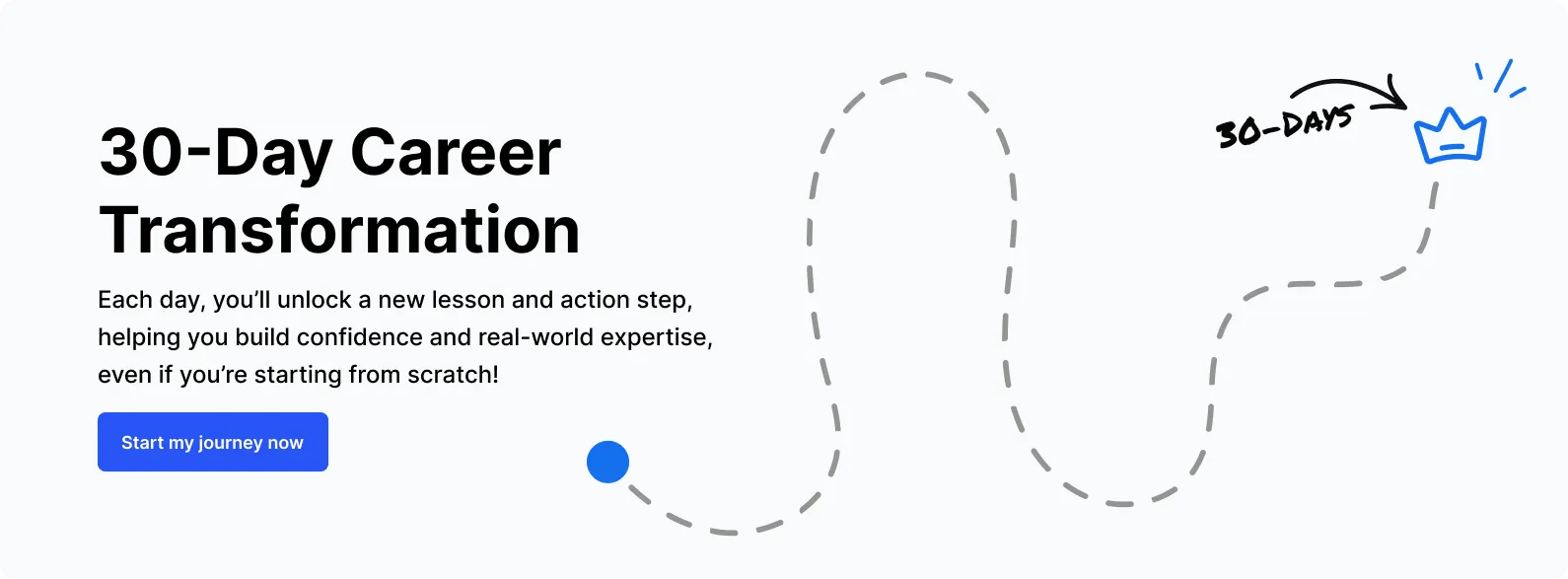
In today's dynamic work environment, keeping pace demands continuous learning and adaptability. With industries shifting and technology advancing at lightning speed, the importance of honing your current skills or acquiring new ones has never been clearer. Enter upskilling and reskilling—two strategies tailor-made for navigating this career maze. Let's explore what they involve and how they can steer your professional journey.
Imagine you're a seasoned professional in your field, but the ground beneath you constantly shifts. That's the reality of today's rapidly changing work world. Maggie Wooll, a researcher delving into evolving work dynamics, simplifies it: "Upskilling means learning new skills to stay competitive and adapt to shifting job demands."
In this fast-paced environment, staying ahead means evolving constantly. Upskilling isn't just about keeping pace; it's about seizing opportunities and driving your career forward.
Maggie Wooll emphasized how the future of work is still human in the world of AI
Upskilling isn't just a tactic—it's a mindset. Embrace lifelong learning for career growth, job satisfaction, and discovering new passions.
Human Resources is more than just a department—it's a powerhouse for your professional growth. April Schmidt, Director of Strategy and Customer Success, champions a strategic HR approach that includes robust reskilling programs. "Reskilling opens doors for employees to expand within or beyond their current roles," she explains passionately.
Reskilling means learning new skills to transition into a different role, often within the same organization. Consider a traditional retailer venturing into e-commerce. Employees may shift from store operations to managing online customer interactions, requiring fresh skills like cybersecurity and digital engagement savvy.
April's journey underscores the value of reskilling in fostering an agile workforce. "Investing in employee growth boosts engagement and keeps us competitive," she shares. This proactive approach avoids constant external hiring for every new tech or process, retaining valuable team members.
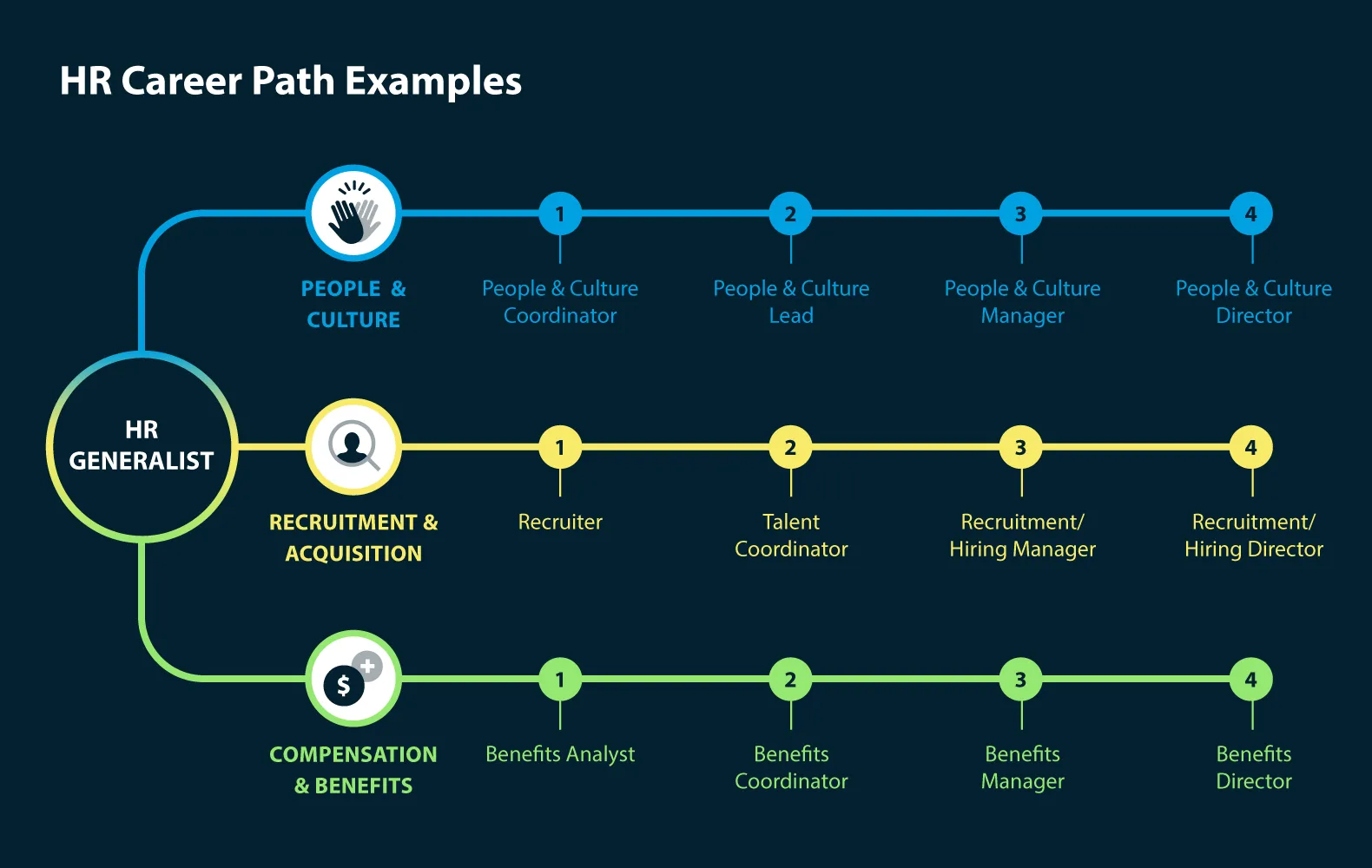
Here are scenarios where reskilling makes a big impact:
April emphasizes that in today's job market, both upskilling and reskilling are essential. Cultivating a culture of continuous learning empowers both employees and organizations to thrive in a rapidly evolving landscape. Understanding these strategies paves the way for a resilient and adaptable career path.
It’s clear that upskilling and reskilling matter, but there’s a reason why they give you an edge right now. The advent of AI and machine learning has brought about a myriad of new skills. If you don’t learn them, you don’t stand a chance. Let’s discuss this in detail.
Today’s job market is a landscape that never stops evolving. The digital revolution, driven by AI and automation, has completely reshaped the skills needed to stay competitive. Whether you're an elementary teacher or a social media manager, this transformation offers both challenges and chances to grow. The key now? Adaptability, continuous learning, and the ability to reinvent yourself are essential not just for career survival but for finding true fulfillment.
Let’s dive into why upskilling and reskilling are more vital than ever and how they can empower you to thrive in this fast-changing terrain.
You are navigating the job market of 2024—a landscape where technology isn't just helpful but essential. Brett Beauchamp-Russell, a seasoned HR professional and AI Prompt Engineer, sheds light on how technology is reshaping job searching. "Today's job market offers both challenges and opportunities," he explains. "Remote work and ongoing technological advancements demand that job seekers stay agile and informed."

To navigate this dynamic environment effectively, Beauchamp-Russell recommends several strategies:
These strategies empower job seekers to stand out in a competitive market, demonstrating their readiness to thrive in a technology-driven era.
James Manyika's insights on today's job market—a realm where digital proficiency isn't just valuable but essential. As a distinguished researcher and advisor on global economic and technology trends, Manyika sheds light on how automation and AI are reshaping industries, presenting both opportunities and challenges. "Automation promises enhanced productivity and economic growth, yet raises concerns about its impact on jobs and required skills", he notes.
The digital revolution brings undeniable benefits, boosting productivity and efficiency. However, it also brings challenges like job displacement and the demand for new skill sets. Manyika stresses that adapting to these shifts demands a commitment to continuous learning and skill development. "To stay competitive, individuals must embrace lifelong learning and regularly update their skills to meet evolving job demands."

Digital platforms and the gig economy are transforming how people seek employment and how companies recruit talent. Manyika underscores the importance for organizations and individuals alike to proactively address these transformations. "Companies must invest in upskilling and reskilling programs to prepare their workforce for the future, while individuals must take charge of their own professional growth."
This proactive approach not only prepares individuals and organizations for the future but also ensures they thrive in an ever-evolving job market.
Shiny Colaco D'Cunha's perspective on the transformative power of upskilling and reskilling—an expert in management and HR who sees these initiatives as pathways from job security to personal fulfillment. "In today's dynamic job market, it's not just about holding onto your job—it's about thriving in your career and finding personal satisfaction," D'Cunha affirms.
D'Cunha draws on a study that uncovers key insights into the advantages and challenges of upskilling and reskilling. Many employees struggle to choose suitable training programs and face financial constraints. Despite these challenges, the impact of upskilling and reskilling on job satisfaction and productivity is significant. "Our research indicates that employees who engage in these programs see improvements in productivity and job satisfaction and discover new career opportunities," she highlights. This underscores the need for organizations to invest more in these initiatives and improve their accessibility.
Here are some compelling data points from D'Cunha:
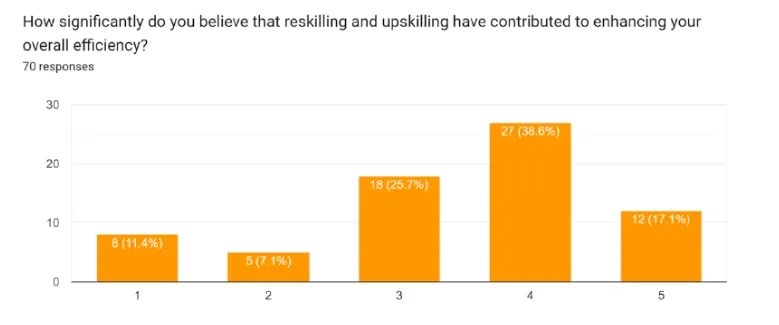
Moving from job security to personal triumph involves overcoming challenges and committing to continuous growth. "It's about embracing lifelong learning and seizing the opportunities it brings," D'Cunha concludes. This approach not only benefits individuals but also boosts organizational performance and competitiveness in today's rapidly evolving market.
Navigating today's dynamic job market where upskilling and reskilling aren't just trendy terms—they're essential strategies for thriving. As industries rapidly evolve, the need for new skills grows, making continuous learning a must. Whether it's mastering AI advancements or adopting new digital tools, staying ahead requires a proactive approach to personal and professional growth. By investing in upskilling and reskilling, individuals not only secure their current roles but also pave the way for personal achievements and new opportunities.
At NoCode Institute, we recognize the urgency of staying relevant in this fast-paced world. Our comprehensive courses are crafted to equip you with cutting-edge skills that empower you to excel in your current job or transition to a new career path. Don’t wait for the future to catch you off guard—take charge of your career today. Explore our programs at NoCode Institute and embark on a journey toward a more secure and fulfilling professional life. Visit us now to discover more and enroll in a course that will reshape your career trajectory.
Looking to re-invent yourself and turn your talent into a career? Stay up to date with the latest.